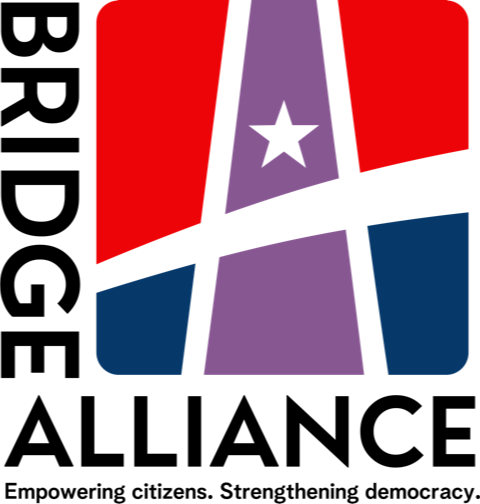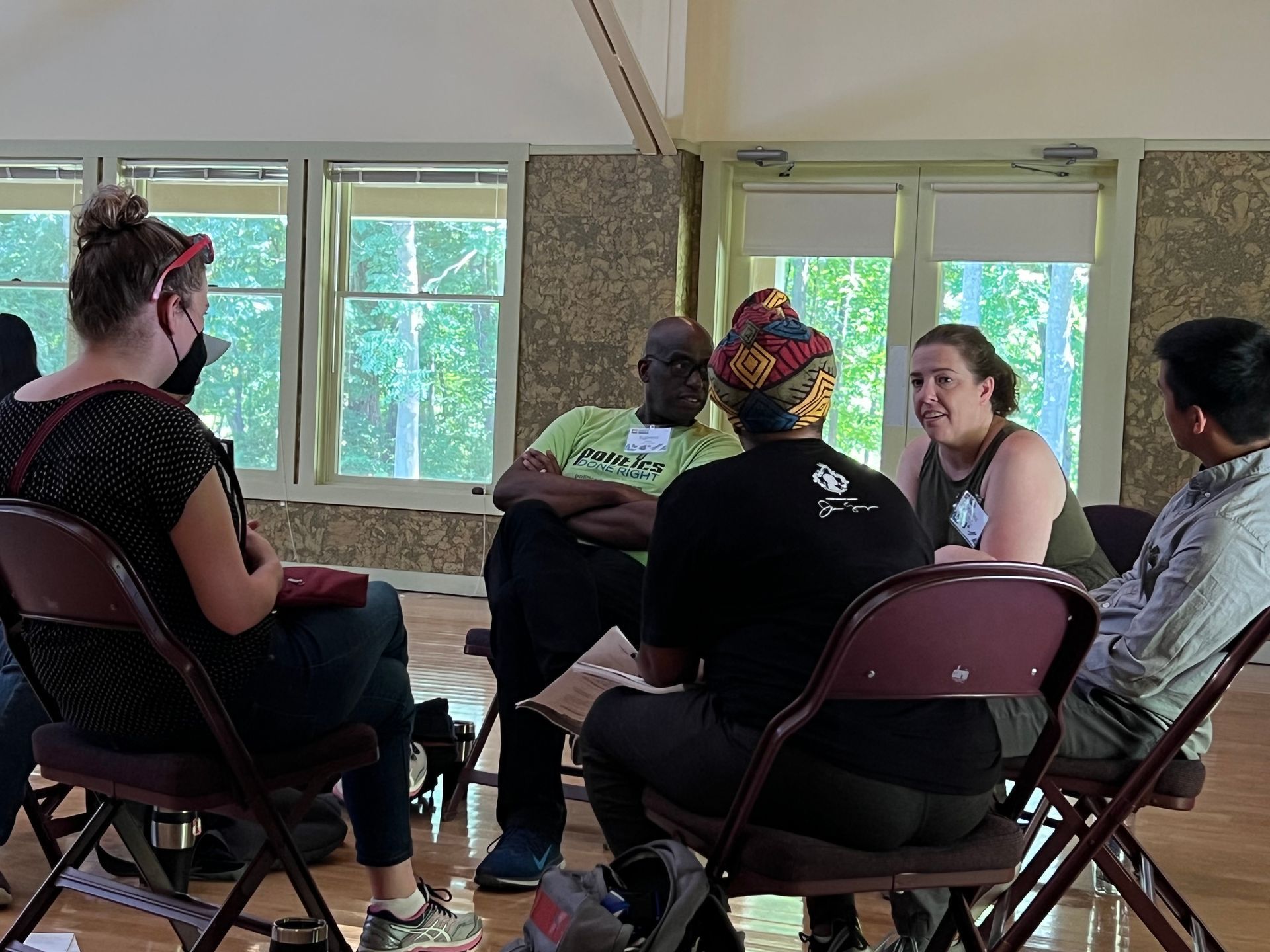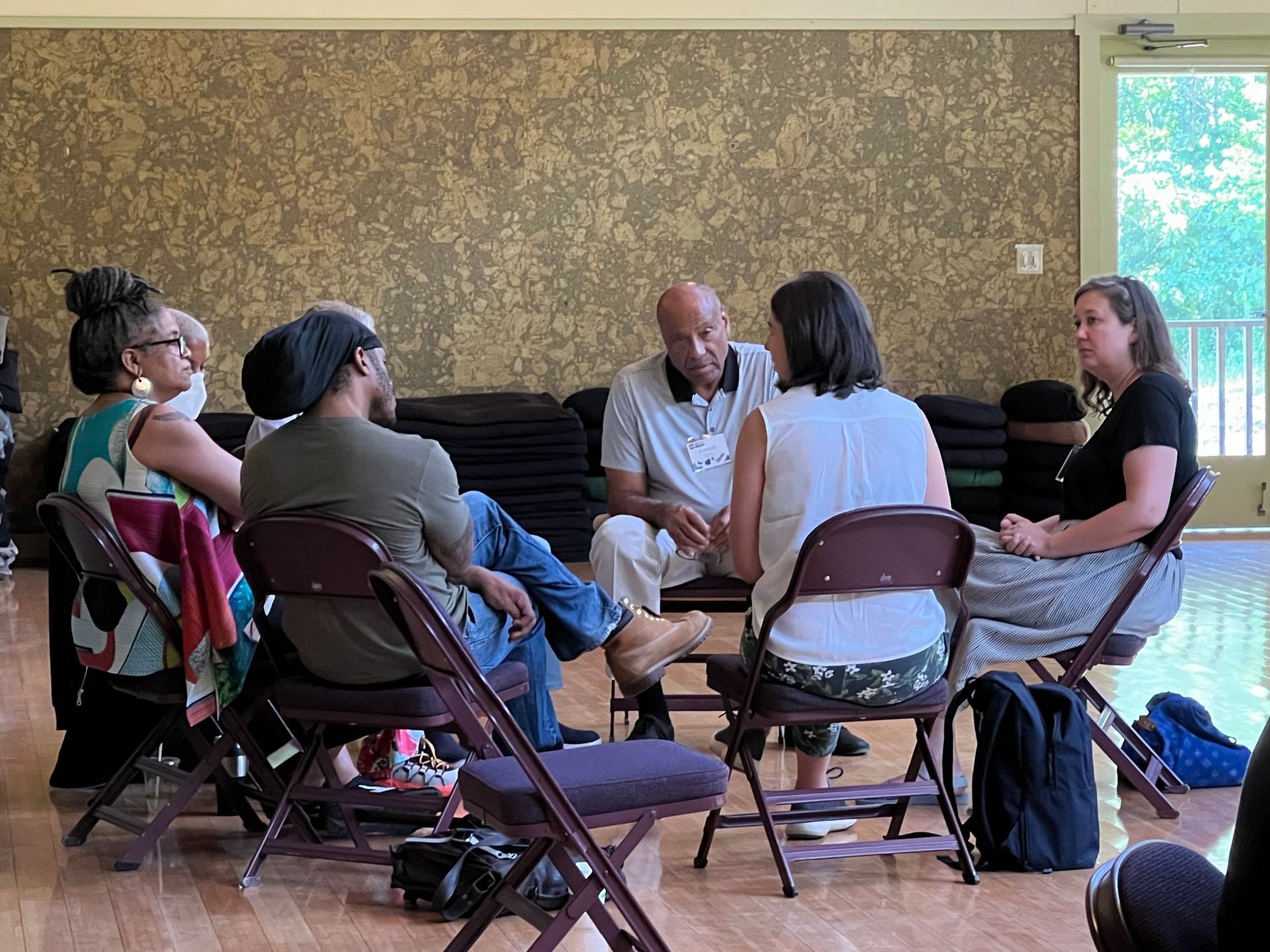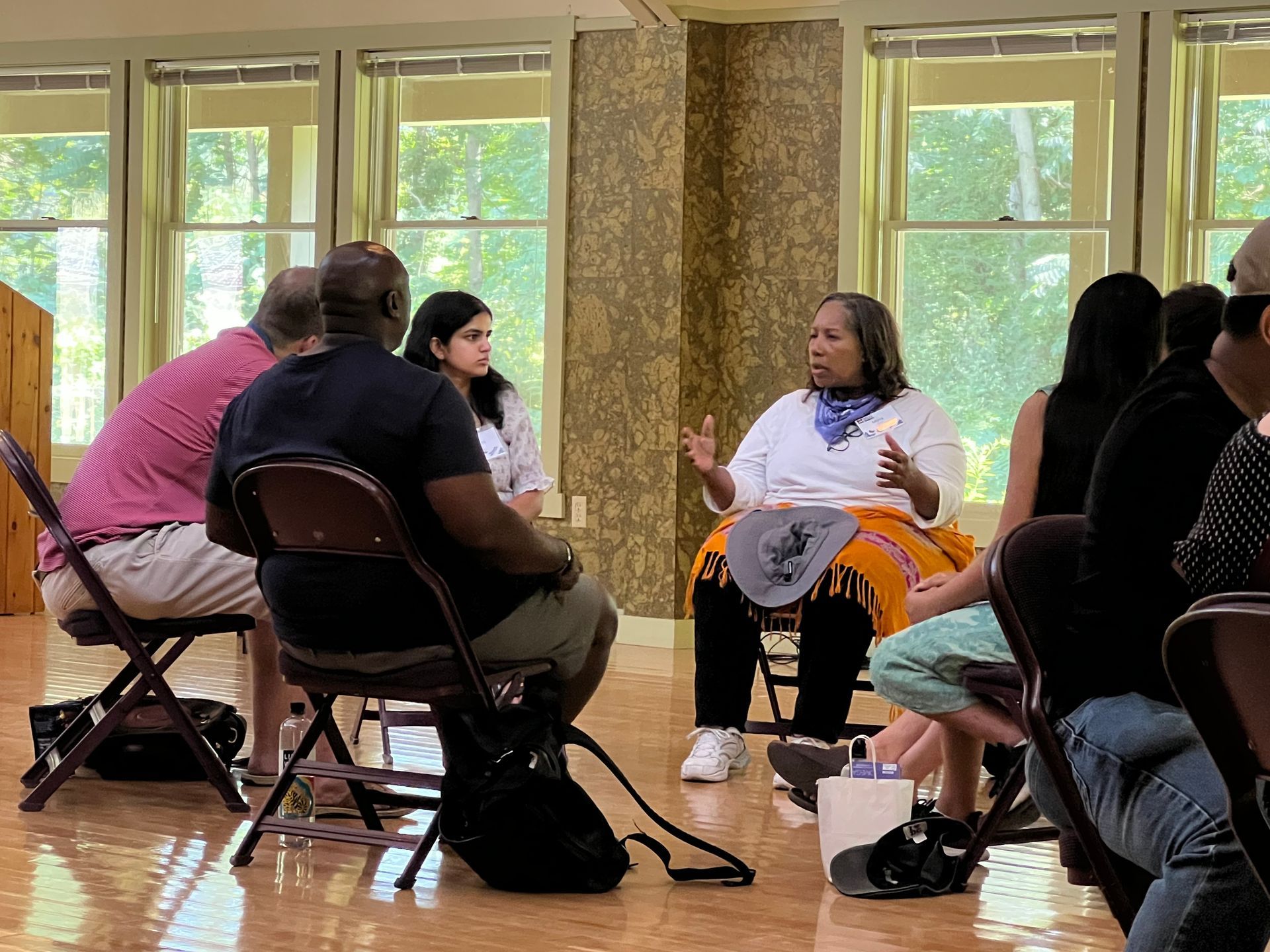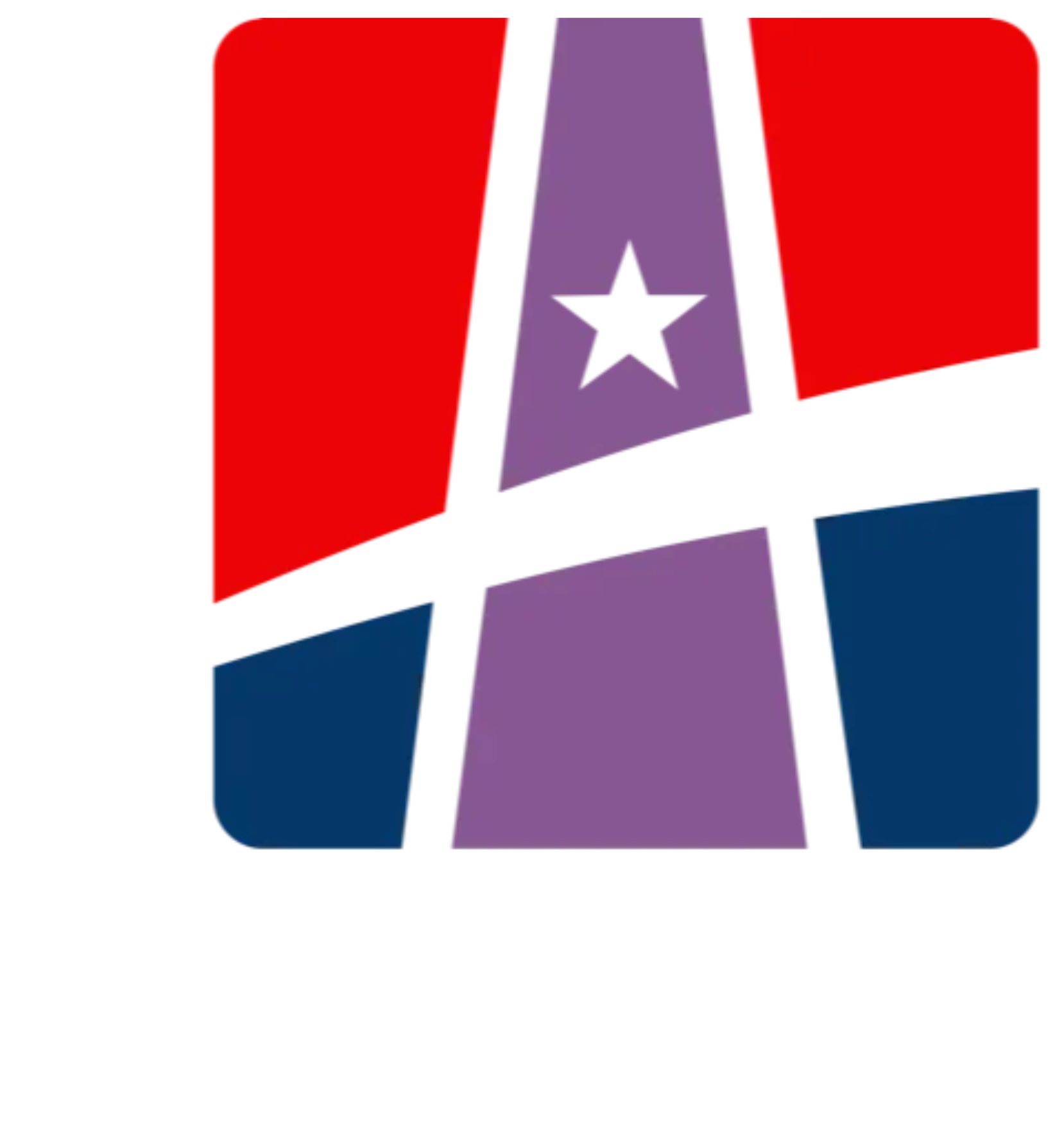JEDIs for Democracy
“Never in history has a democracy succeeded in being both diverse and equal, treating members of many different ethnic or religious groups fairly. And yet achieving that goal is now central to the democratic project in countries around the world.”
-- Yascha Mounk
The United States and other parts of the western world are undergoing massive demographic shifts. We need space, time, and safety to explore options for co-creating our future. We need to pilot ideas and practices that could strengthen our commitment to democracy. The 2-year cycle is currently designed to keep us in an endless loop about elections. What our nation needs is more imagination, creativity, and experimentation. We need functional governance. And in this time of increasing political violence, how might we avoid or minimize harm with a future vision of inclusion and belonging – for all people. All. People.
To make this a reality, we need advocates for Justice, Equity, Dignity, and Inclusion, or JEDIs for democracy.
JEDIs for Democracy Fellows
In August 2022 Bridge Alliance established a group of 30 JEDI fellows, containing a BIPOC majority as a representation of the future of our nation. These JEDI Fellows actively engage around deepening relationships, sense-making, and solutions to sticking points in our current system; they receive leadership development and a foundation on which to draw for the rest of their careers. It is through deepened and lasting relationships across multiple sectors and locations in addition to an improved skill set that further movements and change makers.
Dialogue Policing Initiative
Dialogue policing is a method of law enforcement that focuses on communication and engagement with the public to manage social conflicts and maintain order effectively. It emphasizes building trust between police and community members by creating open communication channels, fostering collaboration, and promoting understanding. The approach aims to reduce tension, prevent escalation of conflicts, and ultimately improve the relationship between law enforcement and the public.
Rev. Dr. F. Willis Johnson will be facilitating the collaborative work of community stakeholders and a select group of Columbus Police Department Dialogue Officers as it is scaled and amplified through an intensive cohort-style community engagement initiative that is now underway and will continue for the next six months.
The crux of dialogue policing promotes communication, mutual respect, and trust between protesting groups and law enforcement officers.
The initiative will use an approach for interfacing the activist, community, the police, and other socio-democratic groups during First Amendment activities that includes:
- Establishing Open Lines of Communication: Policing officials need to prioritize open channels of communication between themselves and protest organizers to keep interactions honest, purposeful, and proactive.
- Humanizing Approach: Officers should avoid militaristic or overpowering tactics. Instead they should embrace a more compassionate posture that humanizes law enforcement officers and protesters.
- Contingency Planning: Police should collaborate with event organizers to identify potential risks or hazards while developing appropriate response plans that respect participants' rights.
- Empathy Training for Law Enforcement: Empathy training should be a fundamental component of police education programs in order to strengthen understanding and rapport between officers and protesters.
- Proactive Engagement: Regular meetings or forums between law enforcement, community members, and activists to address concerns or emerging issues are essential in promoting dialogue, establishing relationships, deterring miscommunication, and allowing for greater oversight.
Dialogue policing dares to better protect the rights enshrined in the First Amendment while fostering positive engagement between diverse groups. Dialogue policing represents an opportunity to rethink conventional law enforcement strategies and proactively support citizens in expressing their democratic rights safely and peacefully.
Catalytic Leaders Initiative
Our community reaches from national nonprofit leaders to local social entrepreneurs but due to the pandemic, there has been a hardening of mindsets into the ”silo” mentality of each person’s work being the most important work. Our work, with partner communities, will allow us to reignite the togetherness and true sense of community needed to turn ideas into action. The Catalytic Leaders Initiative will help us to connect with select leaders who are most engaged in the social cohesion work in their local communities.
The strength of our initiative’s model is in partnering with regional anchors like community foundations and/or intermediary organizations. These strategic partners offer valuable resources as well as an eminent presence in targeted communities. Each partner’s mission commits to sustaining perpetual impact within their communities. This forward-thinking partnership design serves as a critical pipeline of human capital and monetary resources toward promoting sustainability and solvency. Partnering entities strongly advise and support identifying and resourcing place-based leaders; specifically BIPOC+. Participants are selected through an application process and vetted by our collaborative partners and stakeholders in context.
The program consists of six (6) learning modules examining the “core intelligences" of catalytic leadership and organizations for greater social impact. It is a six-month to 8-month cohort learning experience curated for uniquely diverse entrepreneurs, practitioners, advocates, and creatives who are civic and/or socially engaged. This form of praxis is built upon a collection of strategically designed instruction and discussion activities, as well as networking with regional and national content experts and leaders. A hybrid learning design was adopted to ensure responsiveness to varied course-altering dynamics. This personal development experience is built upon alumni groups that allow for follow-up networking and bridging between local and national cohorts.
